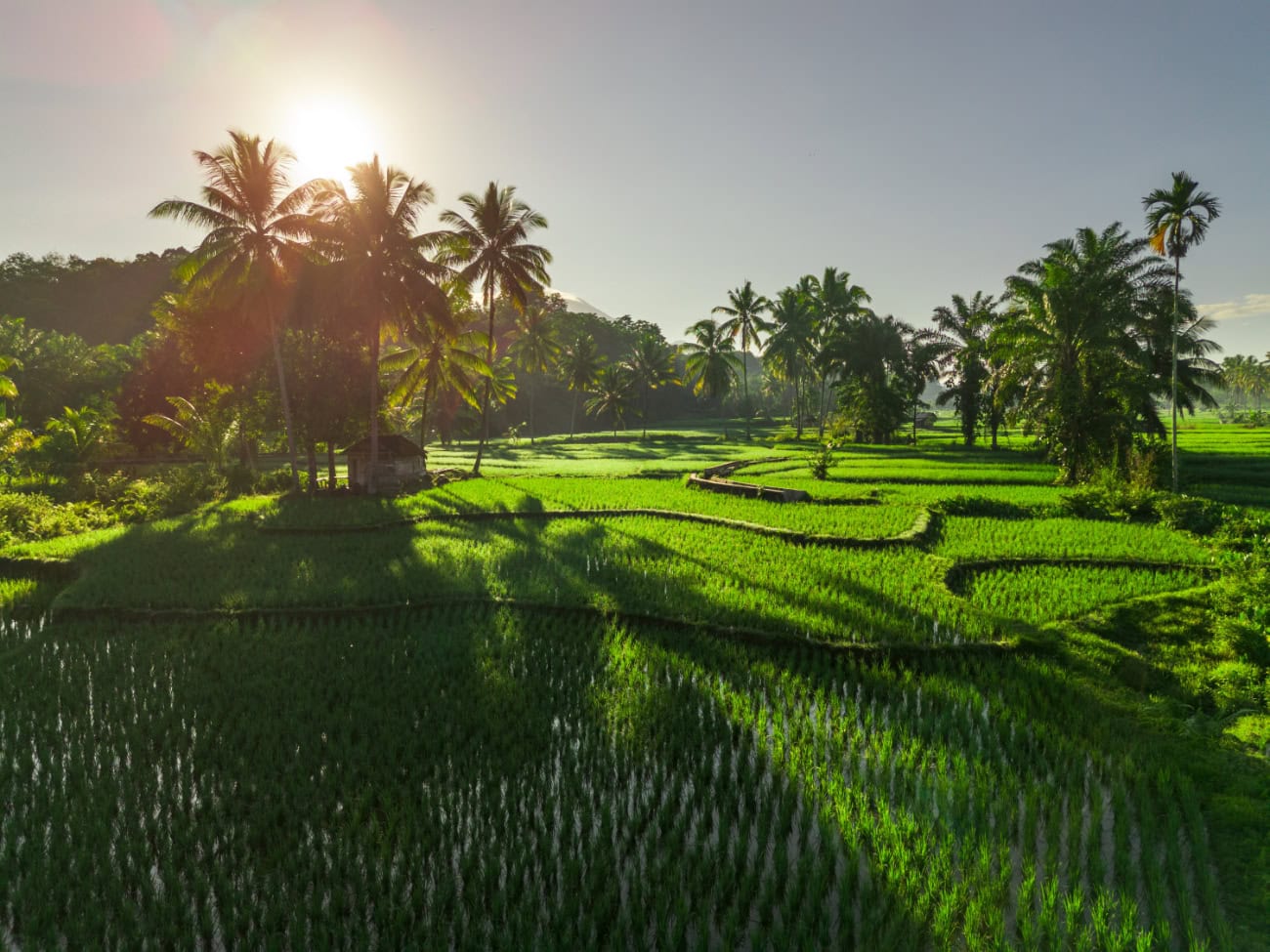Nestled amidst lush rice paddies and steep ravines in the central foothills of Bali, Ubud stands as the island’s vibrant cultural and artistic heart. Far removed from the bustling beach scenes of the south, Ubud offers a serene sanctuary where ancient traditions, spiritual practices, and artistic expression intertwine seamlessly with daily life. It’s a destination that captivates visitors with its tranquil beauty, rich heritage, and a palpable sense of peace that permeates its every corner.
A Sanctuary for Mind, Body, and Soul
Ubud has long been a magnet for those seeking spiritual enlightenment, wellness, and a deeper connection with nature. The town and its surrounding villages are dotted with yoga studios, meditation centers, and holistic healing retreats, drawing individuals from across the globe to nurture their mind, body, and soul. The cooler climate, verdant landscapes, and the gentle rhythm of Balinese life create an ideal environment for introspection and rejuvenation. Many visitors come to Ubud to attend workshops, practice yoga amidst rice fields, or simply unwind in the peaceful embrace of nature.
Artistic Heritage and Creative Expression
Art is woven into the very fabric of Ubud. For centuries, it has been a haven for artists, both local and international, who find inspiration in Bali’s stunning scenery and rich cultural tapestry. The town is renowned for its traditional crafts, including intricate wood carvings, silver jewelry, painting, and textile arts. Visitors can explore numerous art galleries, museums, and workshops, witnessing skilled artisans at work and perhaps even trying their hand at a traditional craft. The Ubud Art Market is a bustling hub where local vendors sell beautiful silks, handmade bags, carvings, and other souvenirs, offering a vibrant glimpse into the island’s creative spirit.
Ancient Temples and Spiritual Practices
Religion plays a central role in Balinese life, and Ubud is home to several significant temples that offer a profound insight into Agama Hindu Dharma, the unique form of Hinduism practiced on the island. The Saraswati Temple, dedicated to the Hindu goddess of knowledge, music, and art, is a stunning example of classical Balinese architecture, adorned with intricate carvings and a beautiful lotus pond. The Ubud Palace (Puri Saren Agung), while not a temple, is a historical landmark that showcases traditional Balinese royal architecture and often hosts traditional dance performances in the evenings.
Perhaps the most iconic spiritual site is the Sacred Monkey Forest Sanctuary. More than just a tourist attraction, this natural forest sanctuary is home to over 700 long-tailed macaques and several ancient temples, including Pura Dalem Agung Padangtegal, Pura Beji, and Pura Prajapati. It’s a place where nature, spirituality, and wildlife coexist, offering a unique and memorable experience for visitors.
Lush Landscapes and Outdoor Adventures
Beyond its cultural and spiritual offerings, Ubud is surrounded by breathtaking natural beauty. The iconic Tegalalang Rice Terraces, with their intricate irrigation system (Subak), are a testament to the Balinese people’s harmonious relationship with nature and their agricultural prowess. These emerald-green landscapes offer stunning photo opportunities and a chance to trek through the fields, experiencing the tranquility of rural Bali.
For those seeking a gentle adventure, the Campuhan Ridge Walk provides a picturesque pathway through lush hills and valleys, offering panoramic views of the surrounding countryside. Numerous waterfalls, such as Tegenungan Waterfall, are also easily accessible from Ubud, providing refreshing escapes and stunning natural backdrops.
Culinary Delights and Healthy Eating
Ubud’s culinary scene is as diverse as its cultural offerings. From traditional Balinese warungs serving authentic local dishes to upscale restaurants offering innovative fusion cuisine, there’s something to satisfy every palate. The town is particularly known for its healthy eating options, with many cafes and restaurants catering to vegetarian, vegan, and organic preferences. Fresh, locally sourced ingredients are a staple, reflecting Bali’s commitment to natural living.
Practical Tips for Visiting Ubud
Getting Around: While the town center is walkable, renting a scooter or hiring a driver is recommended for exploring the surrounding areas and attractions.
Dress Code: When visiting temples, remember to dress modestly. Shoulders and knees should be covered. Sarongs and sashes are often available for rent at temple entrances.
Respect Local Customs: The Balinese are deeply spiritual. Be mindful and respectful during ceremonies and processions, and always use your right hand when giving or receiving items.
Ubud is more than just a destination; it’s an experience that touches the soul. Its blend of artistic heritage, spiritual depth, and natural beauty offers a profound journey into the heart of Bali, leaving visitors with lasting memories and a renewed sense of well-being.

